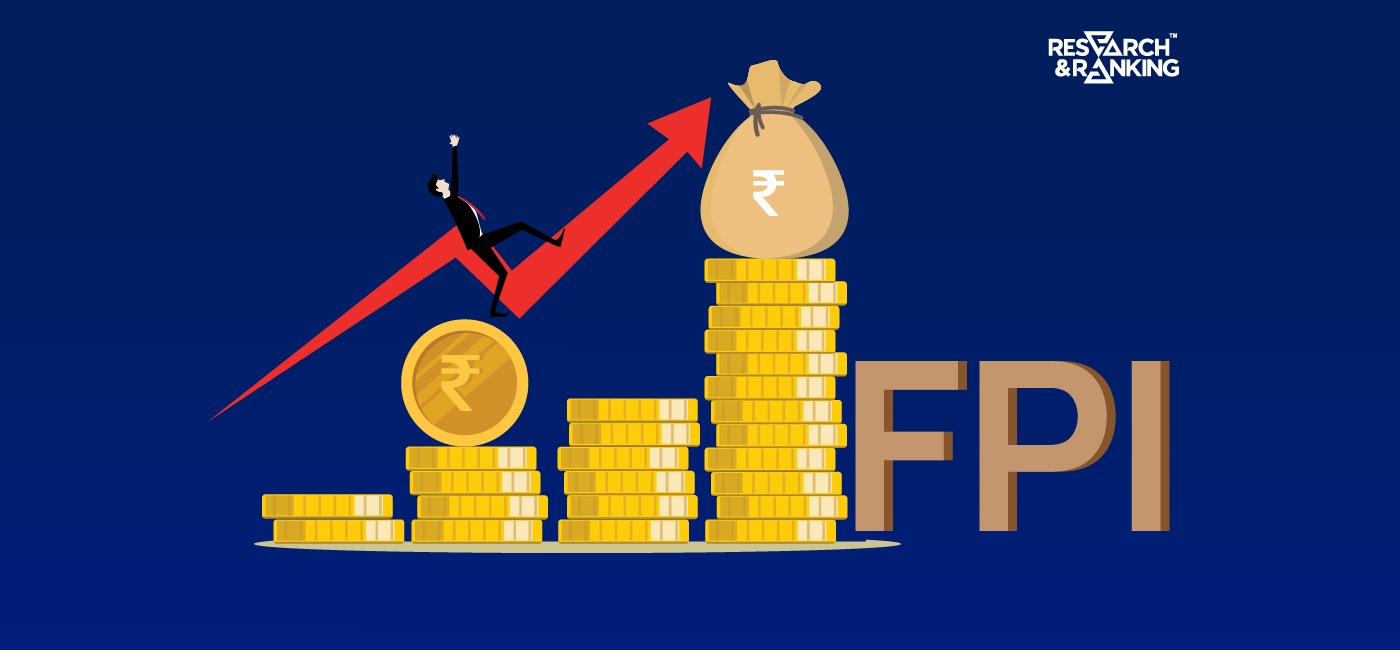Haven’t we all been there? Staring at a long waiting queue outside a popular restaurant. Everyone wants a taste, and it seems foreign investors feel the same about the Indian debt market. They’ve been pouring money in at a record pace, raising some questions: Why the sudden surge? And what does it mean for the Indian economy?
A Record-Breaking Run
Let’s start with some numbers. As of February 2024, Foreign Portfolio Investors (FPIs) have pumped a whopping ₹18,589 crore (over $2.2 billion) into the Indian debt market. That’s on top of the ₹19,837 crore they invested in January, marking the highest monthly inflow in over six years!
This influx of foreign capital is a significant turnaround from recent years when FPIs were net sellers in the Indian debt market. So, what’s changed?
Factors contributing to the rise in FPI investment
- Inclusion in JP Morgan Index: A major driver of this inflow is the upcoming inclusion of Indian government bonds in the JP Morgan Global Emerging Markets Index. This inclusion is expected to attract significant foreign investment into the Indian debt market, providing global investors easier access to Indian bonds.
- Attractive Yields: India offers relatively attractive yields on its government bonds compared to other emerging markets. This makes Indian debt securities a more appealing investment option for FPIs seeking higher returns.
- Stable Rupee: The recent stability of the Indian rupee has also played a role in attracting FPIs. A stable rupee reduces the risk of currency fluctuations for foreign investors, making Indian debt instruments more attractive.
Benefits of Increased FPI Investment
The increased FPI investment in the Indian debt market has several potential benefits for the Indian economy:
- Lower borrowing costs: Increased demand for Indian bonds by FPIs can lead to lower borrowing costs for the Indian government. This is because when there is more demand for a bond, its price goes up, and its yield (the return investors get) decreases. Lower borrowing costs for the government can translate into savings that can be used for other development purposes.
- Stronger rupee: Increased FPI inflows can also help to strengthen the Indian rupee. This is because when foreign investors bring money into India to invest in bonds, they buy rupees. This increased demand for rupees can help the currency appreciate.
- Increased market liquidity: FPI investment can also help to increase liquidity in the Indian debt market. This means it becomes easier for buyers and sellers to find each other and trade bonds, improving the market’s overall efficiency.
A Mixed Bag for the Indian Market
While FPI inflows are positive for the debt market, it’s not all sunshine and rainbows. While they have infused ₹18,589 crore into the debt market in February, they have simultaneously withdrawn ₹424 crore from equities, expressing concerns about rising interest rates. This recent pullback follows a larger withdrawal of ₹25,744 crore from equities in January.
It’s like being attracted to a restaurant for one dish but not necessarily enjoying everything on the menu. Investors might be bullish on Indian debt but not as enthusiastic about other investment opportunities in the country.
Looking Ahead: What Does it Mean for India?
The increased participation of FPIs in the Indian debt market can have positive and negative consequences. On the positive side, it can lead to stable long-term investments and potentially lower borrowing costs for the government. However, it also exposes the Indian economy to external volatility, meaning any change in investor sentiment abroad could impact the market.
What does this mean for you?
As an individual, it’s important to stay informed about these trends and how they might affect your financial decisions. However, consulting with a qualified financial advisor who can provide personalized guidance based on your circumstances and risk tolerance is also crucial.
Conclusion:
Foreign money is changing the Indian debt market, creating upsides and downsides. As this continues, staying aware of what’s happening will be important for future success.
ALSO READ
Understand your taxable income | Agritech DeHaat Empowering Farmers Since 2012 | Types of Share Markets
*Disclaimer Note: The securities quoted, if any, are for illustration only and are not recommendatory. This article is for education purposes only and shall not be considered as recommendation or investment advice by Research & Ranking. We will not be liable for any losses that may occur. Investment in securities market are subject to market risks. Read all the related documents carefully before investing. Registration granted by SEBI, membership of BASL, and certification from NISM in no way guarantee the performance of the intermediary or provide any assurance of returns to investors.
How useful was this post?
Click on a star to rate it!
Average rating 5 / 5. Vote count: 4
No votes so far! Be the first to rate this post.
I’m Archana R. Chettiar, an experienced content creator with
an affinity for writing on personal finance and other financial content. I
love to write on equity investing, retirement, managing money, and more.
























